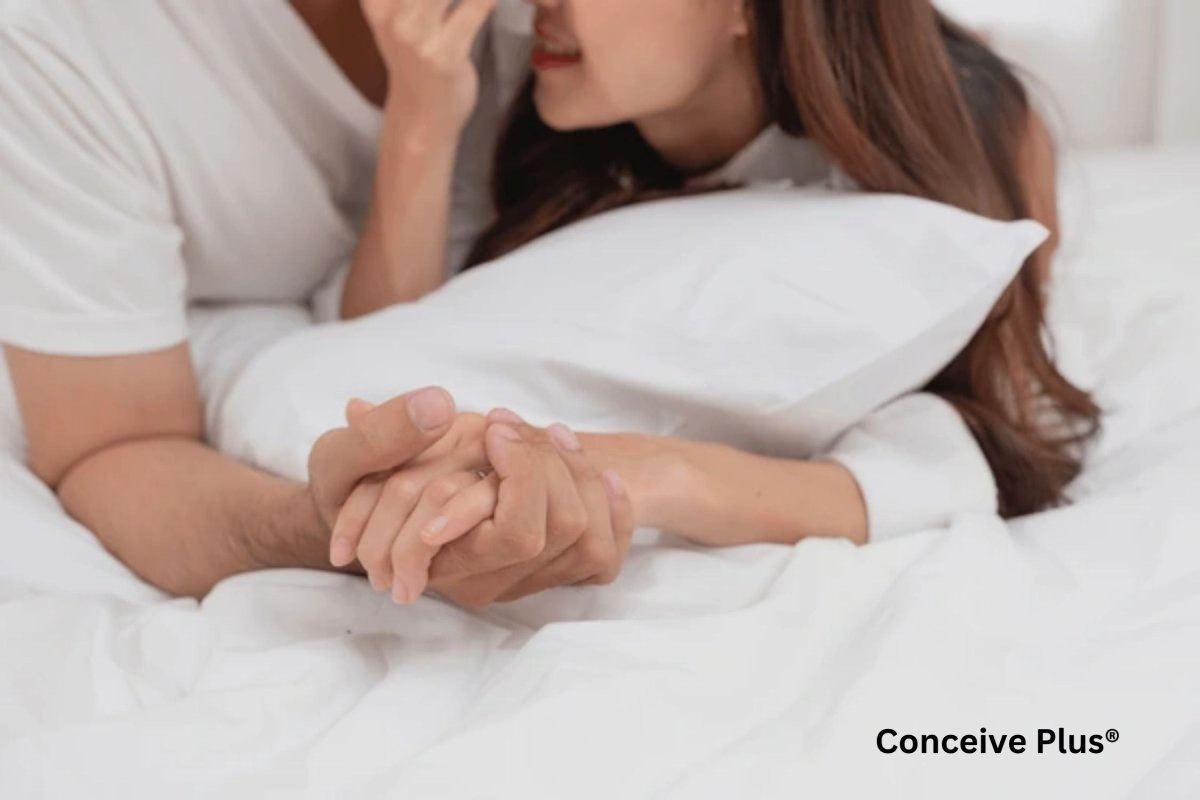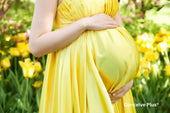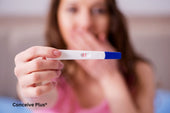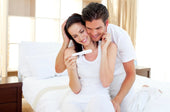Period Sex Explained Safety Ovulation and Pregnancy Concerns

Period sex can puzzle many folks because of health concerns, potential pregnancy issues, or even general unease about blood. Sometimes, you might just not be sure how it fits into daily life and relationships. That’s normal. This piece lays out a clear path, covering misconceptions, fertility hints, and practical tips. You’ll see some thoughts on vitamins and minerals that could help nurture overall fertility goals, but you’ll also get insights on emotional well-being.
What Is Period Sex
It’s common to wonder, is it ok to have sex on your period, or even is having sex on your period bad. Truthfully, there is nothing automatically wrong or unsafe about it if both partners are at ease and mindful of risks like infections or unintended pregnancy [1]. One reason some ask is it bad to have sex on your period is the fear of mess. Yes, blood can stain bedding. But that’s more of a nuisance than a medical concern. Another big question is whether or not you can handle the extra fluid. If you’re comfortable, there’s generally no rule that forbids it.
Top Tip: If tidiness is a worry, just keep a towel near the bed or try shower intimacy. Quick rinses can make cleanup easy.
Pregnancy Concerns
Could you get pregnant even if it’s the 3rd day of period can I get pregnant scenario? Technically, yes. It may surprise people that sperm can live inside the reproductive tract for up to five days [2]. What about can you get pregnant during your period on birth control if you’re not fully consistent with pills or other methods? The short answer is there’s always a risk. So even though the odds might be lower during bleeding days, you can’t assume it’s zero.
Also, there’s confusion over what happens if sperm goes inside during period. Typically, unless ovulation is near, fertilization might not happen. But cycle lengths vary. A short cycle could mean ovulation arrives sooner than expected. That’s why some folks prefer barrier methods, even on their period, to reduce any chance of unplanned conception.
Top Tip: If you’re trying to stay on the safe side, track your cycle carefully. Or have an honest talk with a healthcare provider about the best contraceptive approach for you.
Ovulation During Menstruation
Some people wonder, can I ovulate during my period, or can you ovulate while on your period. Typically, ovulation happens mid-cycle, not during bleeding. Still, bodies can be unpredictable, so it’s not impossible. Another one: can you ovulate while your on your period? Again, it’s unlikely for many, but stress, irregular cycles, or other factors might shift the timeline. A short cycle can place the fertility window closer to your bleeding days [3].
Top Tip: Using ovulation test strips can provide a bit more clarity if you have irregular patterns. It’s not foolproof, but it can help you make sense of your body’s timing.
Benefits of Intimacy at This Time
People might ask, can I have sex on my period for relief from discomfort. Others phrase it differently, like is it safe to have sex during your period. The truth is, period contractions and orgasms can help reduce cramps by releasing feel-good hormones. Also, many find the natural lubrication of menstrual flow adds comfort. Some individuals even notice a stronger desire around this time because of hormonal ups and downs [4]. And you can still make love during period without shame or fear if you’re aware of the possible mess.
Top Tip: If cramps are heavy, try a warm compress right before intimacy. That might loosen tight muscles and reduce discomfort.
Addressing Discomfort
Could the experience be messy or painful? Yes, sometimes. A friend may wonder, is it okay to have sex on your period if dryness is a factor. If you removed a tampon right before, dryness might happen because the tampon can absorb natural fluids. Another friend might ask, what happens if you have sex on your period if you have heavy flow. You might see more blood, but no major harm is done unless you’re prone to fainting at the sight of it. For some, adding a gentle, fertility-friendly lubricant that includes important ions helps, especially if they have future fertility in mind. These might have elements like magnesium chloride and calcium chloride, which can support sperm if you’re hoping to conceive later on [5].
Top Tip: If dryness is a recurring problem, look into lubricants that don’t interfere with sperm health. They might be especially useful for those planning pregnancy soon.
Health Risks to Consider
If you ask, can you have sex on your period without protection, the biggest risk is still passing or receiving sexually transmitted infections (STIs). Blood can carry viruses like HIV or hepatitis, so condoms provide valuable protection. Another worry is menstruation and intercourse leading to an increased chance of bacterial imbalance in some individuals. Proper hygiene, communication about STI status, and barrier usage go a long way. For those wondering when can you have sex safely, it’s important to consider these factors and make informed decisions based on your health and protection preferences.
Occasionally, folks mention is it safe to have sex during your period if one partner has an existing infection. Caution is key. If either partner shows any sign of infection, it’s wise to postpone or use extra protection until it’s addressed [6].
Top Tip: Keep unscented wipes or water-based cleaning items close by, and never hesitate to pause if anything feels off or painful.
Tackling Fertility Queries
Some question, can u have sex on your period if you want to conceive eventually. Sure you can, though your highest chance of fertilization is typically around ovulation. Another person might wonder, “if I have sex on your period, could that help me get pregnant?” Possibly, if your cycle is short and sperm survive until you ovulate. Meanwhile, intercourse in periods can still lead to pregnancy, even if the odds might be smaller. The complexity of cycles means you always have some possibility. It’s also important to consider what to avoid after ovulation to get pregnant to optimize your chances during this phase.
Those who want to optimize chances for a baby can look into daily vitamins or supplements that contain essentials like folic acid, vitamin B12, iron, and so on. Myo-inositol can help with hormone management in certain cases, especially for women dealing with irregular cycles [7]. D-chiro inositol might also be beneficial. A balanced formula with antioxidants such as CoQ10 can protect egg or sperm quality from oxidative stress [8].
Top Tip: If you’re actively trying to conceive, start tracking basal body temperature or use hormone kits to know your fertility window more precisely.
Emotional and Relationship Factors
It’s natural for folks to wonder, having sex on period or having sex while on period—how does it affect bonding? Communication is huge. Some might be squeamish about blood, while others don’t mind. If either of you is unsure or anxious, gently bring it up. Another query asks if is it okay to have sex on your period from a relationship perspective. It can even deepen trust if both parties handle it well. On the flip side, it’s completely fine if it’s not your preference.
In some partnerships, trying to make love during period or making love while menstruating fosters closeness because you’re being open about bodily functions. It may even help relieve tension caused by monthly hormonal changes [9]. For others, it’s simply not comfortable. Always weigh your feelings, not just physical readiness.
Top Tip: Plan a quick chat before initiating intimacy. A few seconds of clarity can avoid misunderstandings and set the tone for a more relaxed experience.
Practical Tips for Minimizing Mess
Got questions like, sex during period or how can we reduce the splash factor? First, consider those lighter flow days. Another route is to hop in the shower for water to wash away any fluid. If you still worry about the bed, toss a dark-colored towel underneath. This helps catch any drips. Some might say, sex on period is off-limits because I can’t stand the laundry. But if you’re comfortable with a bit of planning, you can keep it from becoming a huge hassle.
For easier cleanup, keep tissues or wipes on hand. If you’re wearing a tampon, remove it beforehand to avoid dryness or tampon “pushback.” Some ask, can you have intercourse on your period if you forget to remove it? Probably best not to, because retrieving it later can be awkward or require medical help [10]. So that’s another key step—no foreign objects inside.
Top Tip: If you’re uncomfortable about potential odor, a quick wash with mild soap before and after can help you both feel fresher.
Hormonal Fluctuations
Hormones shift drastically before, during, and after your period. It’s common to see a rise in libido for some, leading them to try sex while on period. Others feel more fatigued or bloated, so they skip it altogether. Period blood can also serve as a built-in lubricant, which might lead to the question, can you have sex on your period purely for enhanced sensation. The short answer is yes—if you feel up for it.
Alternatively, some might choose to skip because they feel moody or crampy. That’s a personal choice. But if you do try it, be mindful that hormones may also affect your emotional state. Any negativity could diminish the experience. And if your hormones are unpredictable, that might lead you to ask, sexual period—what is it even about? It just means sexual activity occurring during menstruation. Nothing unusual about it in the bigger scope of things [11].
Top Tip: If you’re sensitive to hormone changes, keep track in a little journal. That might help you decide which days feel best for intimacy.
The Bottom Line
Yes, period sex can be a positive part of life if you’re comfortable. It may soothe cramps, bring extra lubrication, and even strengthen emotional intimacy. Still, keep in mind the chance of pregnancy if your cycle’s short, and remember the importance of safe practices. Everyone has unique preferences, so do what feels right. Explore fertility-friendly methods if you’re hoping to conceive one day, but otherwise, simply stay open-minded and respect each other’s boundaries.
FAQs
Can you ovulate while on your period?
It’s not typical, but a few individuals with shorter or irregular cycles could ovulate very early. Tracking your cycle is always helpful.
Sexual intercourse during menstruation—is there any health benefit?
Some find relief from cramping, and the extra moisture can increase pleasure. But it’s more a matter of personal comfort than a guaranteed health boost.
Periods and intercourse: is it messy?
Yes, it can be messy. A towel or shower session usually handles most cleanup concerns, though, so it doesn’t have to be a big deal.
Sex on your period and odor worries—what can I do?
Mild, fragrance-free soap and water before and after intimacy often help. Don’t douche or use strong chemicals, as those can irritate delicate tissues.
What happens if you have sex on your period without removing a tampon?
You might push the tampon farther in, causing discomfort or infection risk. Always remove it first to prevent complications.
Citations
- Ramaiyer, M., Lulseged, B., Michel, R., Ali, F., Liang, J., & Borahay, M. A. (2023). Menstruation in the USA. Current epidemiology reports. Available at: https://pmc.ncbi.nlm.nih.gov/articles/PMC10810236/
- Wilcox, A. J., Weinberg, C. R., & Baird, D. D. (1995). Timing of sexual intercourse in relation to ovulation. Effects on the probability of conception, survival of the pregnancy, and sex of the baby. The New England journal of medicine. Available at: https://pubmed.ncbi.nlm.nih.gov/7477165/
- Fehring, R. J., Schneider, M., & Raviele, K. (2006). Variability in the phases of the menstrual cycle. Journal of obstetric, gynecologic, and neonatal nursing: JOGNN. Available at: https://pubmed.ncbi.nlm.nih.gov/16700687/
- Cappelletti, M., & Wallen, K. (2016). Increasing women's sexual desire: The comparative effectiveness of estrogens and androgens. Hormones and behavior. Available at: https://pmc.ncbi.nlm.nih.gov/articles/PMC4720522/
- Agarwal, A., Nallella, K. P., Allamaneni, S. S., & Said, T. M. (2004). Role of antioxidants in treatment of male infertility: an overview of the literature. Reproductive biomedicine online. Available at: https://pubmed.ncbi.nlm.nih.gov/15169573/
- Workowski, K. A., Bolan, G. A., & Centers for Disease Control and Prevention (2015). Sexually transmitted diseases treatment guidelines, 2015. MMWR. Recommendations and reports : Morbidity and mortality weekly report. Recommendations and reports. Available at: https://pubmed.ncbi.nlm.nih.gov/26042815/
- Unfer, V., Facchinetti, F., Orrù, B., Giordani, B., & Nestler, J. (2017). Myo-inositol effects in women with PCOS: a meta-analysis of randomized controlled trials. Endocrine connections. Available at: https://pmc.ncbi.nlm.nih.gov/articles/PMC5655679/
- Bentov, Y., Hannam, T., Jurisicova, A., Esfandiari, N., & Casper, R. F. (2014). Coenzyme Q10 Supplementation and Oocyte Aneuploidy in Women Undergoing IVF-ICSI Treatment. Clinical medicine insights. Reproductive health. Available at: https://pubmed.ncbi.nlm.nih.gov/24987272/
- Leavitt, C. E., Lefkowitz, E. S., & Waterman, E. A. (2019). The role of sexual mindfulness in sexual wellbeing, Relational wellbeing, and self-esteem. Journal of sex & marital therapy. Available at: https://pmc.ncbi.nlm.nih.gov/articles/PMC6640099/
- Reame NK. Toxic Shock Syndrome and Tampons: The Birth of a Movement and a Research ‘Vagenda’. 2020 Jul 25. In: Bobel C, Winkler IT, Fahs B, et al., editors. The Palgrave Handbook of Critical Menstruation Studies. Available at: https://www.ncbi.nlm.nih.gov/books/NBK565591/
- Dennerstein, L., Randolph, J., Taffe, J., Dudley, E., & Burger, H. (2002). Hormones, mood, sexuality, and the menopausal transition. Fertility and sterility. Available at: https://pubmed.ncbi.nlm.nih.gov/12007901/



















